NHS strikes: More East of England ambulance staff to walk out
- Published
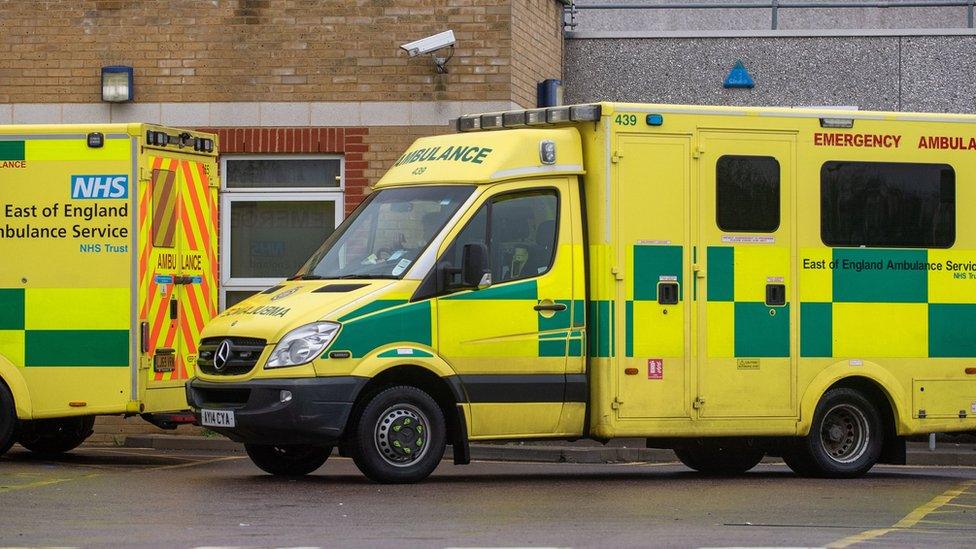
The East of England Ambulance Service covers the six counties of Bedfordshire, Cambridgeshire, Essex, Hertfordshire, Norfolk and Suffolk
The largest union representing ambulance staff at the East of England Ambulance Service (EEAST) has voted in favour of a strike.
Unison, which represents about three-quarters of workers at EEAST, said 87% of those who voted opted to strike.
This month, EEAST staff joined a nationwide dispute over staffing levels and pay for the first time when members of the GMB union voted to walk out.
EEAST reiterated that it understood "the strength of feeling".
GMB said its members at EEAST would join national strike action on 6 March, but no date has been given for the walk out by Unison.
NHS: Who is striking, and what does it mean for patients?
Nurses to stage 48-hour strike as dispute escalates
Ambulance staff in East of England vote for strike
EEAST covers one of the largest regions of any UK ambulance service, looking after a population of roughly 6.2 million in Bedfordshire, Cambridgeshire, Essex, Hertfordshire, Norfolk and Suffolk.
'Living on another planet'
The vote on Thursday, which was open to 3,000 of 4,000 workers at EEAST, was a re-ballot by Unison and had a turnout of 57%.
Unison failed to win a vote among EEAST staff in December, which it said had been affected by postal strikes.
Its eastern regional secretary, Tim Roberts, said: "The public must think the Westminster government is living on another planet.
"They can see how talks in other parts of the UK have lifted the threat of strikes and cannot understand why the prime minister isn't doing the same.
"East of England ambulance staff don't want to stop work, and the public wants an NHS capable of delivering quality care.
"The prime minister must roll up his sleeves, invite the unions into Downing Street and start the genuine pay talks that could end this damaging dispute."
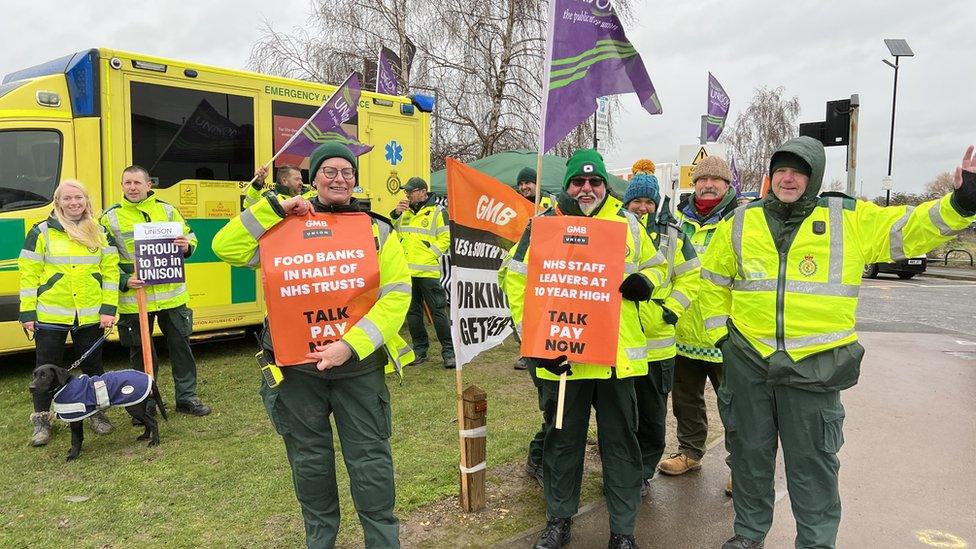
Ten thousand ambulance workers from the GMB union went on strike across the country in January, but not in the East
Repeating its statement following the GMB vote, EEAST said it was "committed to working with our unions to improve working lives at our service".
Just under 1,000 members of the GMB union at the trust were eligible to vote in its ballot on 7 February. It had a turnout of 55.7%, with 86% voting in favour to strike.
Health Secretary Steve Barclay has pointed to warnings from the Bank of England against pay increases due to inflation.
"I have held constructive talks with the trade unions on pay and affordability and continue to urge them to call off the strikes," he said.
"It is time for the trade unions to look forward and engage in a constructive dialogue."

Find BBC News: East of England on Facebook, external, Instagram, external and Twitter, external. If you have a story suggestion email eastofenglandnews@bbc.co.uk, external
- Published7 February 2023
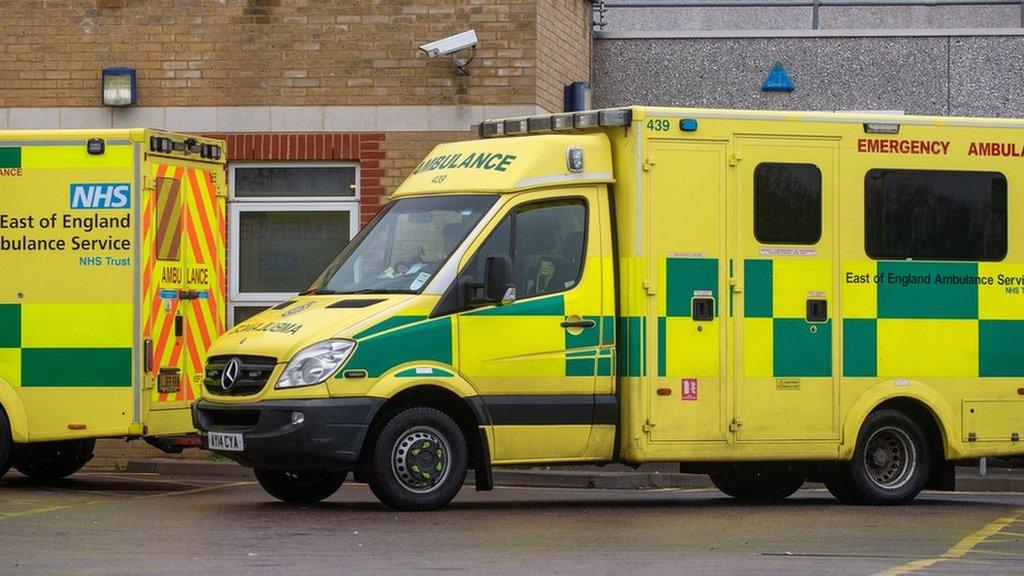
- Published25 January 2023
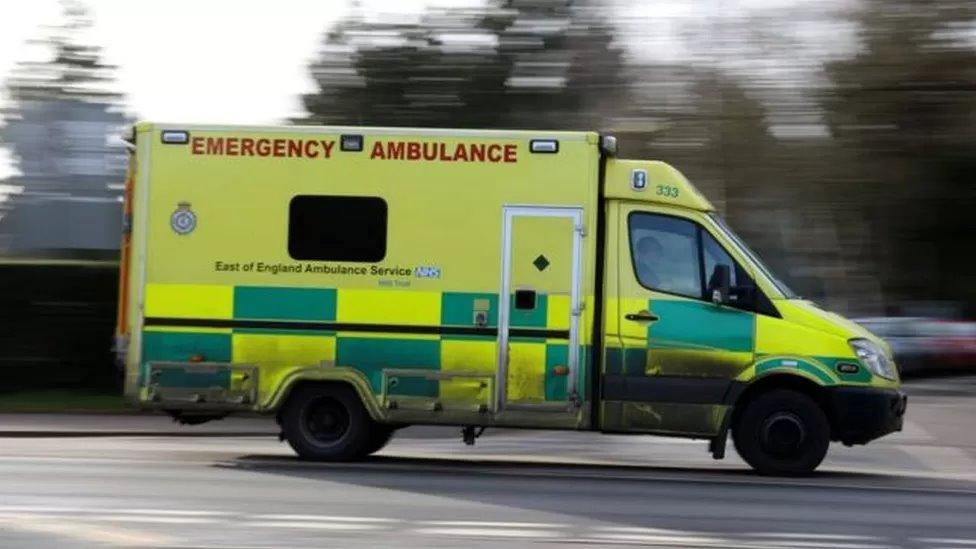
- Published24 October 2022
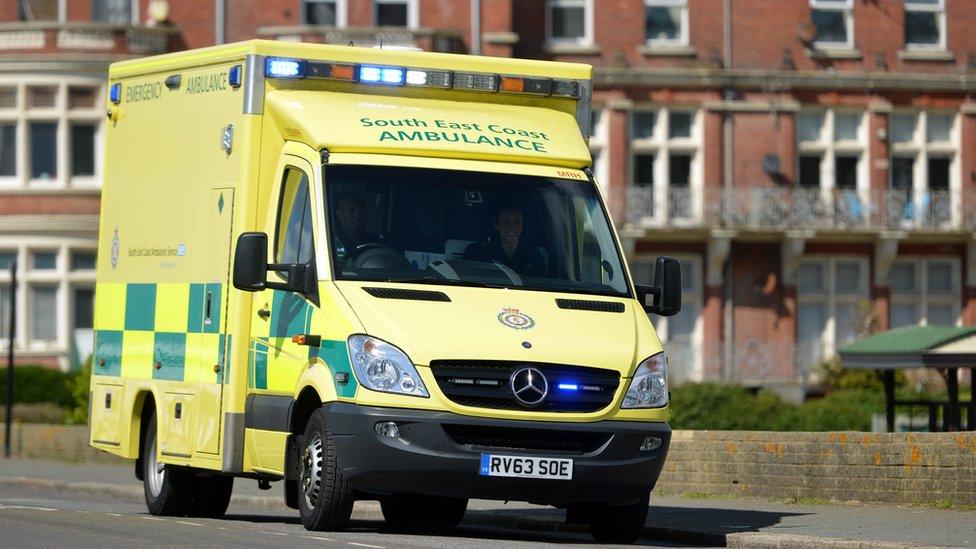
- Published20 October 2022
